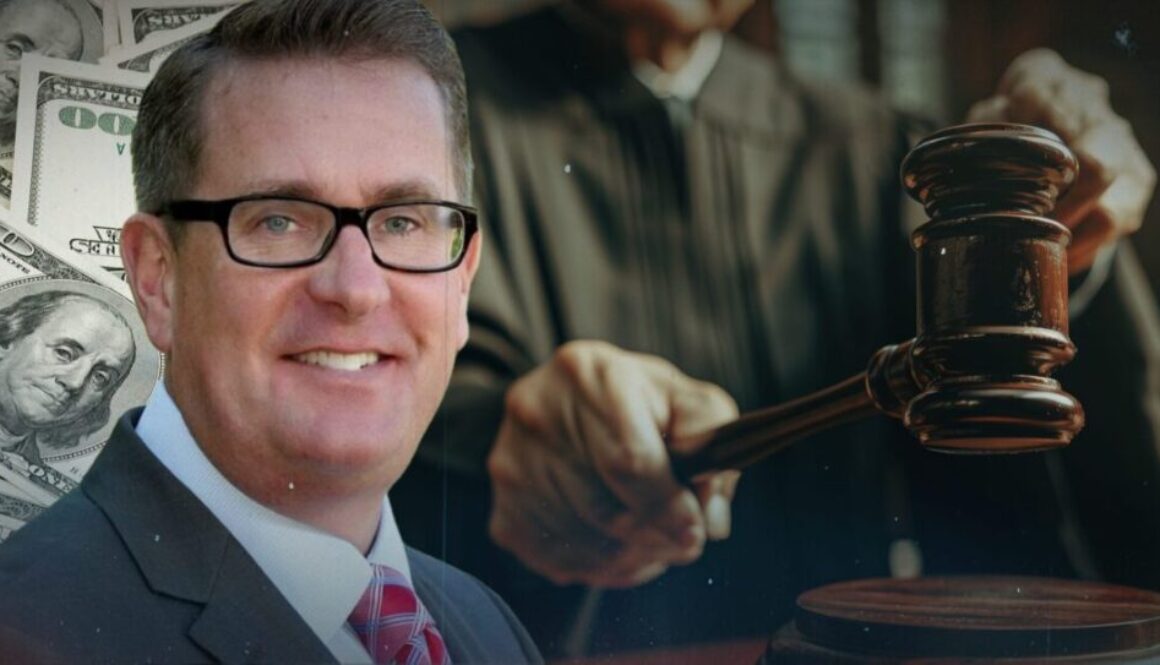According to the latest data from Northwestern Mutual’s 2025 Planning & Progress Study, only about one-third of American millionaires consider themselves wealthy, and nearly half said that their financial planning needs improvement.
There are 23.8 million millionaires in the U.S., the most of any country in the world, the survey said. While most don’t see themselves as “wealthy,” American millionaires are much more likely to report higher levels of financial discipline, confidence, and clarity than the average American.
Another differentiator of American millionaires is that they are much more likely to work with a financial advisor (74%), which is more than double the number of the general population (34%). They also trust financial advisors far more than any other source of financial advice. And 93% said that they have received financial advice, compared to 78% of Americans in general.
Interestingly, the survey pointed out, millionaires who have a financial advisor feel even more secure than millionaires who do not work with one. They also expect to retire two years earlier than those who do not partner with an advisor. And millionaires with financial advisors are also more likely to feel strong about their relationships, careers, health, and finances.
So, what is causing so many millionaires to not consider themselves wealthy? Several factors contribute to this perception, explained Mark A. Mascarenhas, private wealth advisor and director of investments with Haven Wealth Advisors, a Northwestern Mutual Private Client Group. First, where someone lives can have a huge impact on living, such as in major cities, where housing and healthcare costs can significantly deplete assets.
Additionally, millionaires often compare themselves to peers within their social circles, Mascarenhas said. As they accumulate more wealth, they tend to associate with even wealthier individuals, making the notion of “wealthy” a constantly shifting benchmark.
Mascarenhas pointed out that instead of striving to feel wealthy or rich, a more meaningful objective is to achieve financial security—being able to confidently answer the question, “Will my family and I be taken care of, even if the unexpected occurs?” “It’s about establishing a robust plan tailored to your unique financial future rather than competing with the Joneses or the Kardashians,” he said.
Addressing concerns of the wealthy
The survey also said that high-net-worth Americans are the most concerned about the possibility of outliving their savings, the impact of taxes in retirement, and planning for possible long-term-care needs.
What steps can advisors take to help their HNW clients address these concerns? Outliving savings is a significant concern for HNW individuals, and advisors play a crucial role in addressing it, Mascarenhas said. To help clients feel secure about their financial future, advisors can start by developing comprehensive financial plans that account for longevity risk. “This involves stress-testing portfolios to ensure sustainability over extended periods and considering various economic scenarios,” he said.
Tax planning is another essential area where advisors can offer guidance, Mascarenhas pointed out. Implementing tax-efficient withdrawal strategies and exploring options like Roth conversions can help minimize the tax impact during retirement – so life savings stretch further.
Additionally, optimizing asset allocation can further reduce tax liabilities, making retirement funds stretch further, Mascarenhas said. A strong financial plan can help people ensure that they don’t have to pay more in taxes than they need to. Simple adjustments can make a big difference.
The role of long-term care in retirement planning
Long-term care is also a critical aspect of retirement planning that shouldn’t be overlooked. “Advisors can assist clients in evaluating long-term care planning options and creating dedicated savings for potential healthcare costs,” Mascarenhas said. “Exploring various strategies to cover these expenses can provide clients with peace of mind – and with better choices to choose from, if a long-term care event occurs. Importantly, it also protects their retirement nest egg from unexpected costs – enabling them to maintain their lifestyle, pass along an inheritance, and continue living life in retirement by design. “
Regular reviews and adjustments to financial plans are important as clients’ circumstances and market conditions evolve, Mascarenhas pointed out. This ensures that strategies remain aligned with clients’ goals and address their concerns effectively.
Finally, education and communication are key. “Advisors should keep clients informed, providing clarity and reassurance, so they feel confident about their financial future,” Mascarenhas said.
Many HNW Americans are small business owners, Mascarenhas pointed out. Over time, they’ve invested significantly in their business’ success. As they approach retirement, many want to convert the wealth they’ve built inside their businesses into a retirement nest egg that can fund their dreams. “A trusted financial advisor can help serve as a quarterback, coordinating attorneys, accountants and other professionals to develop plans to make this happen,” he said.
These individuals in particular have often scrimped and saved and invested their whole lives in their businesses, Mascarenhas added. A financial advisor can also be someone who gives these business owners the permission to actually spend some money on themselves. “Sometimes,” he said,” it’s hard for people who have sacrificed for 30 or 40 years to feel like they can live a little. By running the numbers, an advisor can give someone the confidence to enjoy today, knowing that tomorrow is also planned for.”
By focusing on these areas, advisors can effectively address the concerns of high-net-worth clients, ensuring their financial well-being in retirement, Mascarenhas added.
In addition, according to the survey, only about half of American millionaires expect to leave an inheritance or a charitable gift as part of their estate plan. Mascarenhas pointed out that this is a startling insight and will likely come as a shock to the next generation of Americans who are hoping to get a piece of the “Great Wealth Transfer.” It really highlights the evolving perspectives on wealth and legacy, he said.
Educating the next generation
“As advisors, we have a unique opportunity to bridge the gap between generations and foster financial literacy and security. One key role we play is in educating the next generation about the fundamentals of financial planning, “Mascarenhas said. “This involves discussing topics like budgeting, investing, and the importance of saving early and consistently, so that financial security isn’t reliant on inheritance.”
“We should also encourage open conversations about wealth transfer and estate planning within families,” Mascarenhas said. “By facilitating these discussions, we can help clarify expectations and prepare the next generation for future financial responsibilities. It’s not just about preparing to receive wealth but also understanding how to manage it wisely.”
Another approach, Mascarenhas said, is to introduce the next generation to financial planning tools and resources. This involves guiding the next generation in setting financial goals, understanding risk management, and exploring investment opportunities that align with their aspirations and values to ultimately build their own wealth.
More importantly, fostering a mindset of financial independence is essential. Advisors who work with younger clients can help them develop their own financial plans, independent of anticipated inheritances, ensuring they’re well-equipped to build their own wealth.
“By playing an active role in educating and guiding the next generation, advisors can help them navigate their financial futures with confidence, ultimately moving them closer to greater financial security,” Mascarenhas said.
The 2025 Planning & Progress Study was conducted by The Harris Poll on behalf of Northwestern Mutual among 4,626 U.S. adults aged 18 or older. The survey was conducted online between January 2 and January 19, 2025.
© Entire contents copyright 2025 by InsuranceNewsNet.com Inc. All rights reserved. No part of this article may be reprinted without the expressed written consent from InsuranceNewsNet.com.
The post Does a $1M make you rich? Many millionaires today don’t think so appeared first on Insurance News | InsuranceNewsNet.






















